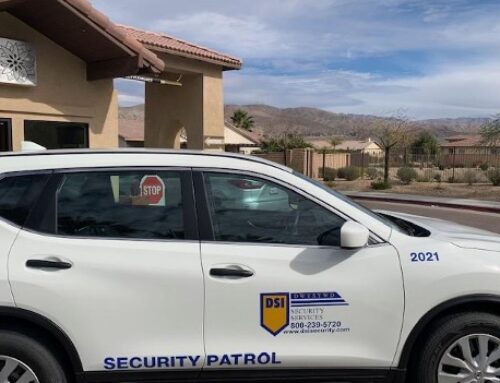Decades long Arrest Wave Vexes Employers
Companies Struggle to Navigate Patchwork of Rules That Either Encourage or Deter Hiring Americans With Criminal Records
Eddie Sorrells, chief operating officer at DSI Security Services, a provider of security guards. Mr. Sorrells says a felon couldn’t get licensed as a security guard in most states where DSI operates. WES FRAZER FOR THE WALL STREET JOURNAL
By JOHN R. EMSHWILLER and GARY FIELDS
Dec. 12, 2014 9:34 p.m. ET
Eddie Sorrells is evaluating job applicants he knows he can’t hire.
The chief operating officer of DSI Security Services, a provider of security guards, is checking out potential employees with felony or certain misdemeanor convictions even though they wouldn’t get licensed in many of the 23 states where the firm operates.
Driving the company in that direction are government officials in Washington and elsewhere who want to give people with rap sheets a better shot at a job. Mr. Sorrells figures the reviews take up hundreds of hours of staff time a year.
“It defies common sense,” said Mr. Sorrells, who is general counsel as well as COO of the Dothan, Ala., family-owned company.
Three decades of tougher laws and policing have left nearly one in three adult Americans with a criminal record, according to data kept by the Federal Bureau of Investigation. That arrest wave is washing up on the desks of America’s employers.
Companies seeking new employees are forced to navigate a patchwork of state and federal laws that either encourage or deter hiring people with criminal pasts and doing the checks that reveal them. Employers are having to make judgments about who is rehabilitated and who isn’t. And whichever decision they make, they face increasing possibilities for ending up in court.
Employers are in this position because there are nearly 80 million Americans with criminal records, including arrests that didn’t lead to a conviction, at a time when the Internet and computerized databases make such information easier than ever to obtain. Ignoring the records can leave a company vulnerable to making bad hiring decisions and to lawsuits. But using them can raise the ire of government officials and lead to charges of discrimination.
Scott Fallavollita, the owner of United Tool & Machine Corp. in Wilmington, Mass., said his first priority is keeping his 25-employee workplace safe. At the same time, he has hired individuals with criminal records who were good workers. “I think most people can see both sides and really want to do the right thing,” he said.
The number of companies running criminal background checks has increased steeply in recent decades, said Michael Stoll, a professor at the University of California, Los Angeles, who has studied the topic. In the early 1990s, he said, fewer than 50% of employers used background checks.
But 87% of employers were doing them on some or all job applicants in 2012, a survey that year by the Society for Human Resource Management showed. The figure was 92% in 2010, according to the professional group.
Michael Aitken, its vice president of government affairs, said the recent decline could stem from the complex legal landscape. “Some employers might say it isn’t worth walking into that minefield,” he said, even though “a bad hire can have consequences for the company, its employees and its customers if that person commits another crime.”
Much of the nervousness traces to a 2012 document from the U.S. Equal Employment Opportunity Commission. It recommended that employers not ask about criminal records on initial application forms. Before rejecting someone because of a criminal record, it said, the employer should examine such things as when a conviction occurred, whether the crime was related to the job in question and what rehabilitation efforts the individual had made.
Though not a law, the document, called an enforcement guidance, has teeth. It is the EEOC’s position on what the 1964 Civil Rights Act’s employment-discrimination section, Title VII, requires of employers.
It revises guidance from the 1980s. An update was needed, said EEOC Chairwoman Jenny Yang, because “more Americans have criminal records than they did [and] the Internet makes access to criminal records more available.”
‘‘Would I say that anyone with a felony record doesn’t deserve a job? Of course not. Just not a job in the security business.’’
—Eddie Sorrells, chief operating officer of DSI Security Services
In addition, 13 states and nearly 70 local jurisdictions have passed laws restricting employer requests for criminal records early in the hiring process, according to the National Employment Law Project, a nonprofit research and advocacy group. Some of these “ban-the-box” laws—referring to a check-off box on forms—don’t allow asking until a conditional job offer has been made.
The restrictions help those with rap sheets at least get a foot in the door. Yet companies remain within their rights to check criminal records at some point. The EEOC says there are instances where a criminal record is a valid reason to turn down a job applicant.
Washington, D.C., has a ban-the-box law. “You have people right now to the tune of 8,000 residents per year coming home to the District of Columbia from incarceration,” said Councilman Kenyan McDuffie, a Democrat. If they can’t find jobs, he said, crime rates go up, along with social-service and law-enforcement costs.
Race is a factor. Some minority groups, particularly black males, have higher arrest and conviction rates than whites, putting companies at risk of getting crosswise with the federal government’s antidiscrimination rules.
Under federal law, a decision that appears race-neutral, such as asking about criminal records in hiring, can run into legal problems if its effect is to disproportionately harm a particular racial or ethnic group.
A 2009 study of 250 entry-level job openings in New York City found an applicant’s likelihood of getting a callback or job offer fell by nearly 50% with a criminal record. Black applicants with records fared far worse than similarly situated white applicants in the study, done by researchers at Princeton and Harvard universities.
Critics of delaying a criminal-record question say this can just postpone the inevitable. “If it is a disqualifying offense, you’ve just wasted both the candidate’s and the employer’s time,” said Nick Fishman, executive vice president of EmployeeScreenIQ, a background-screening firm in Cleveland.
Grocery-store chain Aldi Inc., which operates in 32 states with varying laws, dropped the question from applications, said Thomas Behtz, a vice president. The Batavia, Ill., firm now asks about criminal history only after making a conditional job offer, then gives the applicant a questionnaire tailored to what can be asked in the state at issue.
“I wouldn’t say we feel handcuffed. But things are very, very defined,” Mr. Behtz said.
DSI, the security-guard firm whose Mr. Sorrells is evaluating some applicants he can’t hire, uses a criminal-background question on application forms in states where this is permitted and not elsewhere.
The firm doesn’t automatically exclude applicants who admit to being felons, instead proceeding to look at whether they meet other hiring criteria, such as willingness to work the hours and locations available. If so, it does an individualized assessment of the criminal record.
Only then, Mr. Sorrells said, does the company reject the applicant. A felon couldn’t get licensed as a security guard in most states where DSI operates, Mr. Sorrells said. Even where they could, the company—though it has hired people with minor misdemeanors—won’t employ felons.
The reason is “liability concerns and what we believe is our obligation to put the most qualified and well-suited officer at the client’s property,” he said.
“Would I say that anyone with a felony record doesn’t deserve a job? Of course not,” said Mr. Sorrells. “Just not a job in the security business.”
In its policing efforts, the EEOC has launched 100 investigations and a series of enforcement cases. It has reached settlements in the past year with six companies over alleged misuse of criminal history, the agency said in a report.The EEOC settled with a PepsiCo Inc. unit in 2012 over allegedly discriminatory treatment of black applicants with criminal histories. Pepsi Beverages agreed to pay $3.1 million and possibly offer positions to some applicants. In a written statement, Pepsi said there wasn’t any finding of intentional discrimination, and it has worked with the EEOC to revise its hiring policy.
Retailer Dollar General Corp. and a U.S. unit of BMW AG are currently being sued by the EEOC. Both denied wrongdoing.
G4S Secure Solutions (U.S.A.) Inc., a Jupiter, Fla., supplier of security services, said it spent several hundred thousand dollars responding to information requests from the agency during a nearly three-year probe stemming from a complaint filed by a black applicant rejected for a security-guard job. G4S said he was turned down because of two theft convictions.
Once the EEOC starts looking into a company, “the burden is almost unending on the employer until it meets whatever expectation” for information the commission has, said Geoff Gerks, senior vice president at G4S. The probe ended with no charges by the EEOC, and G4S reached settlements with two individuals, he said.
The EEOC said it doesn’t confirm or deny the existence of particular investigations or comment on pending litigation.
A judge last year dismissed an EEOC suit accusing a Dallas events-marketing firm, Freeman Co., of a pattern of discrimination based partly on its use of criminal-background information. Judge Roger W. Titus, in dismissing the suit in federal court in Greenbelt, Md., said the agency was asking companies to ignore “criminal history and credit background, thus exposing themselves to potential liability for criminal and fraudulent acts committed by employees, on the one hand, or incurring the wrath of the EEOC.”
The EEOC has appealed. Freeman declined to comment.
While the federal government and some states have been moving to help people with criminal records catch a break, others have challenged the EEOC’s campaign or have toughened background-check requirements.
Texas sued the EEOC in federal court in Lubbock seeking to set aside the 2012 enforcement guidance, which the state’s complaint called the “felon-hiring rule.” The court said Texas didn’t have standing to challenge the rule, a decision the state is appealing.
Iowa recently expanded a background-check requirement for home-based child-care providers to include checks against the FBI’s criminal-records system, not just Iowa criminal records.
Ohio in 2007 passed a law barring people convicted of certain crimes from working in public schools. The Cincinnati system discharged 10 employees, nine of them black. Two of the nine filed a suit in Cincinnati federal court, which is still pending, alleging racial discrimination.
One plaintiff, Eartha Britton, 60 years old, was an instructional assistant and 18-year veteran. Her crime: a 1983 conviction for being a go-between in the sale of $5 worth of marijuana, a conviction that was later expunged, the suit said. Through her attorney, she declined to be interviewed.
The Cincinnati school district said in a court filing that public and private employers shouldn’t be in the position of second-guessing state law.
Even businesses that don’t hire can get entangled in the issue. Care.com Inc. is an online service that helps customers find caregivers. Though the caregivers aren’t its employees, the Waltham, Mass., firm faces a suit over the background of one.
Clients Nathan and Reggan Koopmeiners say in the civil suit they paid the firm for its highest level of background check, yet it didn’t tell them that a woman they hired had a “history of alcohol abuse and violence.” Under the influence of alcohol, she negligently struck or slammed the head of their infant daughter, killing her, said the suit, filed in Wisconsin state court in July and later transferred to Milwaukee federal court. The woman faces a murder charge, to which she has pleaded not guilty, said her attorney, who said she didn’t intend to harm the child.
Care.com said it screens caregivers based on information they provide, including searching a criminal database, but this is only a preliminary check and it offers three higher levels of checks at different prices. In a court filing, it said the Koopmeiners hadn’t purchased any of those, and it denied wrongdoing.
The varying impulses—to give job seekers a fair shot, to keep workplaces safe and to keep companies out of legal jeopardy—have left Paul O’Brien, president of engineering firm GHT Ltd. in Arlington, Va., struggling to chart a course.
He once hired a mechanical engineer with convictions for burglaries, figuring he had turned his life around, and it worked out fine. At the same time, some of GHT’s federal contracts require criminal-background checks of employees, Mr. O’Brien said. He is watching the growth of restrictions on such record checks.
“You gotta know what you’re getting into,” he said. Otherwise, “you bring somebody in and after he embezzles from you, then you find out he embezzled from his last boss, too?”
GHT’s job application still has a criminal-history question. Mr. O’Brien is thinking of dropping it. “I don’t want to get on the wrong side of the government,” he said.
Write to John R. Emshwiller at [email protected] and Gary Fields at [email protected]
Copyright Wall Street Journal







